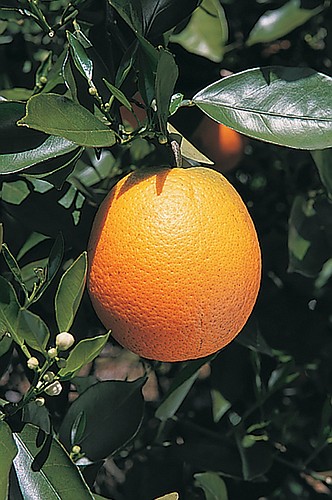- November 24, 2024
-
-
Loading

Loading

Tampa land broker Bill Eshenbaugh rode his horse from Bradenton to Fort Pierce recently, spending the night at ranches and citrus farms along the way.
Eshenbaugh says the interior of Florida's rural character isn't going to change anytime soon, which creates lots of questions about Alico's recent deal to buy thousands of citrus acres in the center of the state.
According to the latest government data, citrus-product consumption has been declining as fewer people drink orange juice. The industry has also been hit hard by competition from places such as Brazil and deadly tree diseases such as greening.
So what's behind Alico's big bet on citrus? And why are New York private equity funds so interested in rural land in Florida?
In late 2013, a group of New York-based private-equity investors acquired the majority stake in Alico from the heirs of the late citrus magnate Ben Hill Griffin Jr. They appointed mining industry executive Henry Slack as chairman of the board and third-generation citrus grower Clayton Wilson as CEO.
Other sophisticated investors are taking an interest in Alico, too. Recently, Naples money manager Bruce Sherman revealed he had acquired nearly 7% of the company's shares. Sherman didn't return calls for comment, but the value investor is known as a shrewd stock picker.
So far, investors have been rewarded. The company's shares are publicly traded under the symbol ALCO and the stock has risen more than 17% for the year-to-date ending Dec. 18 (recent price: $45).
Alico officials didn't return requests for comment to discuss the company's recent blockbuster $363 million deal for three rivals.
After buying control of the company, Alico's new majority owners slashed the dividend in half and sold off the sugar-producing land earlier this year. Then, on Dec. 3, the company announced it would become the nation's largest citrus producer by acquiring three rivals for $363 million.
Alico had already acquired two producers when it made the announcement: Orange-Co on Dec. 2 and Gator Grove on Sept. 23. Another acquisition, Silver Nip Citrus, is expected to close in the first quarter. In total, Fort Myers-based Alico will own 32,600 acres of citrus groves, up from 10,900 acres, resulting in a 189% increase in production.
The biggest acquisition is Orange-Co's 20,263 acres, which comprises one of the largest contiguous citrus grove properties in Florida. The $274 million Orange-Co acquisition was financed with proceeds from Alico's recently announced $97 million sale of its sugarcane land and a portion of the proceeds from new long-term debt and credit lines.
Randy Thibaut, the CEO of Land Solutions in Fort Myers, believes this is the start of a consolidation process in the citrus industry. “We expect to see a significant transfer of properties from the family farmers to the big corporations,” he says. “This is just the beginning of the consolidation.”
Institutional investors have been snapping up productive farmland in recent years, moving away from more speculative real estate, Thibaut says. Citrus land, for example, will produce income until such time as it may be sold for other uses such as residential development. “They're looking at 50-year horizons,” Thibaut says.
Even though citrus land is far from metro areas, Eshenbaugh points to the success of residential developments such as The Villages near Ocala as promising for rural lands. The Villages, an active-adult community, is one of the best-selling developments in the country despite its remote inland location.
Meanwhile, Eshenbaugh says the citrus industry may have hit its low point. “I think the research and announcements that there might be a cure for greening might herald the end of the downturn in values inland,” he says. “That's a benchmark turn of the tide.”
Follow Jean Gruss on Twitter @JeanGruss